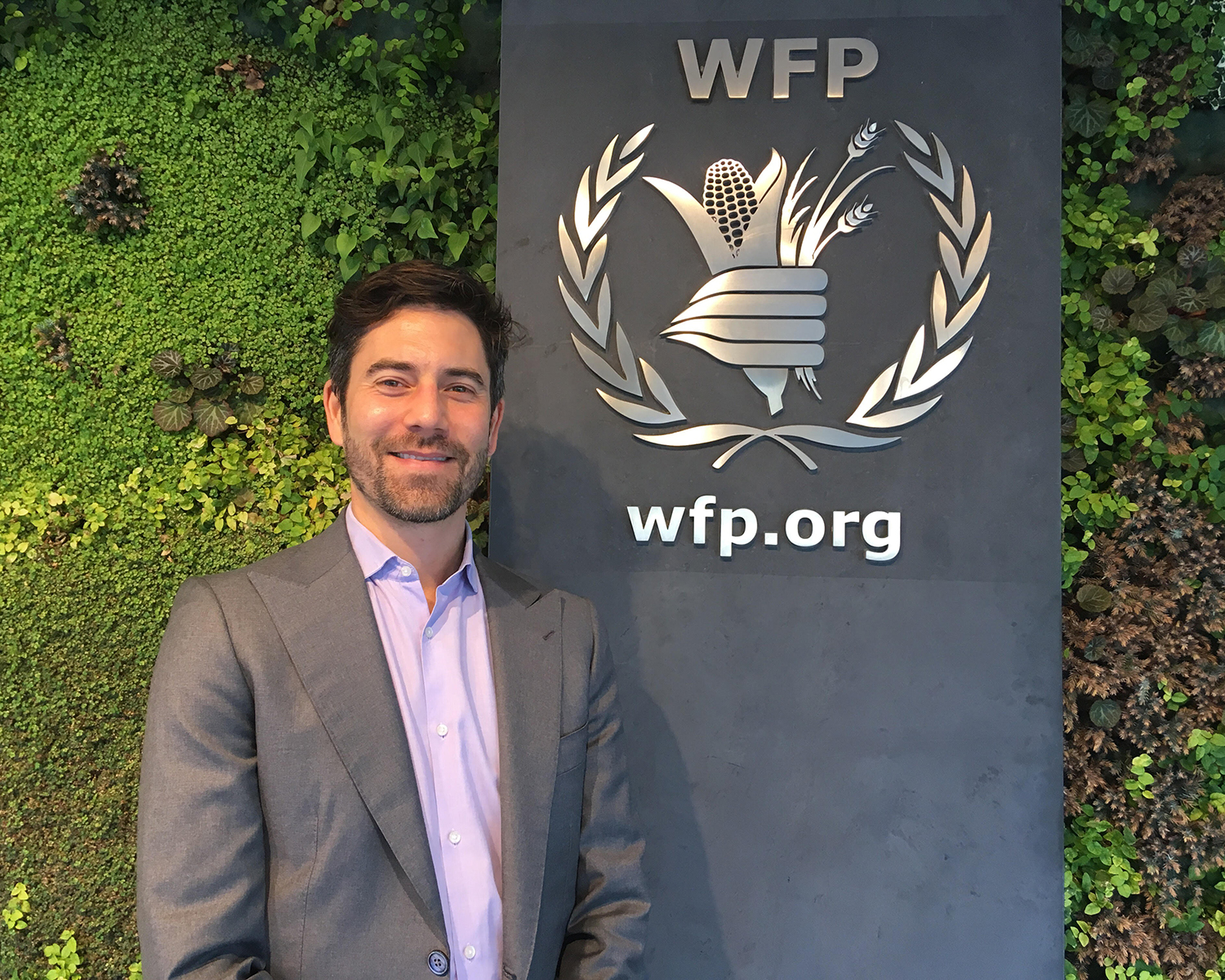Addressing Inequity through Food
With the United Nations World Food Programme, Adam Jaffee (’06) works to provide communities around with world with affordable, nutritious food.

Addressing Inequity through Food
With the United Nations World Food Programme, Adam Jaffee (’06) works to provide communities around with world with affordable, nutritious food.
Adam Jaffee (’06) says BU Law’s Immigrants’ Rights Clinic (now the Immigrants’ Rights & Human Trafficking Program) helped him develop the “social justice lens” through which he views the world.
“While in the clinic, I represented political asylum candidates who taught me a great deal about their different backgrounds and the hardships that many people endured and overcame to achieve safety and stability,” says Jaffee. “Although the idea and opportunity to pursue food justice didn’t arrive until several years later, I began to see that many of the inequities that defined periods of my clients’ lives were linked to food.”
Now, as a programme policy officer with the United Nations World Food Programme (WFP) in Rome, it has become more apparent to Jaffee that a country cannot truly provide the elements of a good life—like health and education—if its people do not have access to affordable, nutritious food.
Jaffee credits his BU Law education with giving him “access to the people and communities [he] hoped to help.” Soon after graduating from law school, he moved to Dharamsala, India to work with the Tibetan Centre for Human Rights and Democracy to document human rights violations against Tibetan refugees. He returned to the US to complete a clerkship for the Hon. Delissa Ridgway at the US Court of International Trade, and found his way forward.
“Through my court work as well as conferences that I collaborated on with Judge Ridgway, I made the connections between international trade and development and recognized my pathway to a career in development and human rights work,” he says.
With WFP, Jaffee supports the design and implementation of country strategic plans to end hunger. He had always admired the organization’s efforts to save lives during emergencies by providing food and other types of assistance, and was particularly motivated to join the organization after it aligned its work with the UN’s Sustainable Development Goals, a set of 17 goals to “end poverty, protect the planet, and ensure prosperity for all,” according to the UN’s website.
The greatest challenge has been trying to think bigger, including how we might partner more effectively to offer integrated solutions that would transform lives.
“WFP moved from a project-based approach to an approach that requires country offices to consult with the host government about its priorities and objectives, to identify gaps, and decide how WFP can best support that country,” says Jaffee. “This strategic shift attracted me to my current role as programme policy officer.”
Jaffee’s work allows him to discuss programs, policies, and plans for food security and nutrition with government officials and development partners. He also has the opportunity to visit some of the people WFP helps and hear their perspectives. On a recent trip to Afghanistan, Jaffee and his boss visited an informal settlement camp in Kabul where the inhabitants have been living for 10 to 15 years, since being displaced by conflict. “We spoke with a family about whether they would prefer food or cash assistance,” he says, “and heard from one of the sons that he’d like to be a doctor or engineer—if he could attend school instead of collecting garbage that his family sells for income.”
Confronting these realities, Jaffee notes, is harder to put into action. Providing food might ease the suffering for a short time, or cash may help people buy basic necessities, but it doesn’t have the long-term impact that he and WFP hope for.
“The greatest challenge has been trying to think bigger, including how we might partner more effectively to offer integrated solutions that would transform lives,” he says.
Nonetheless, he is determined to make an impact on the ground. In the short term, his goal is to support the Nepal Country Office in its consultations with the new government in Nepal, which recently held historic elections that decentralized the government for the first time. To help Nepal overcome extremely high levels of malnutrition, it will be critical to work with the national, provincial, and local governments to implement policies at all levels.
Ultimately, Jaffee would like to take his understanding of WFP’s new policy framework outside headquarters to help support the goals of a single country office.
“I’ve undoubtedly enjoyed working in HQ and facilitating our country offices’ efforts to comply with our new policy structure,” he says, “but I’d like to better understand how we implement that work.”
